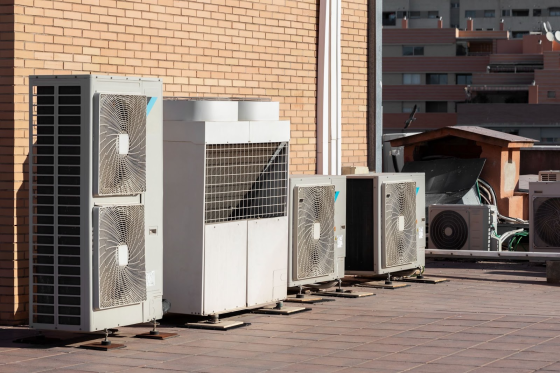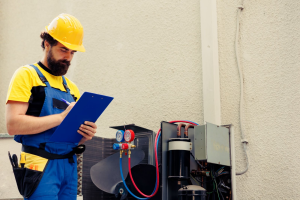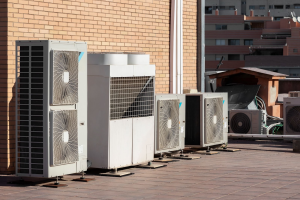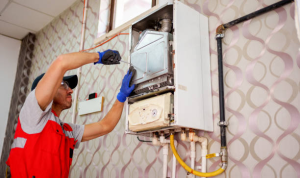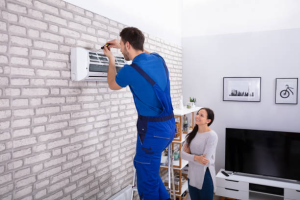Homeowners in Bristol are increasingly considering alternatives to traditional gas and electric heating systems. One of the most popular options is the air source heat pump, a renewable energy solution that extracts heat from the outside air and transfers it into the home. This technology has been widely adopted across Europe and is growing in the UK thanks to government incentives and the drive toward lower-carbon living. If you are weighing up whether this system suits your property, it is important to understand how it works, its benefits, potential drawbacks, and how it compares to other options. For professional support, North Bristol Cooling & Heating LTD offers tailored advice and installation expertise, including heat pump installation bristol.
How Air Source Heat Pumps Work
An air source heat pump operates on a principle similar to a refrigerator, but in reverse. Instead of cooling an enclosed space, it extracts heat from the outside air, even in winter, and transfers that energy indoors. A fan draws air across an evaporator coil containing refrigerant. The refrigerant absorbs heat, compresses, and releases it through a heat exchanger, which then provides warm air or heated water for radiators, underfloor heating, or domestic hot water.
There are two main types of air source heat pumps:
- Air-to-air systems: These deliver warm or cool air directly into the home through fans. They are suited to smaller properties or supplementary heating.
- Air-to-water systems: These integrate with a central heating system and distribute hot water to radiators, underfloor systems, and taps. They are the most common choice for whole-home heating.
This technology allows for efficient heating and cooling while using less energy than conventional boilers or electric heaters.
Suitability for Bristol Properties
Bristol presents a mix of property types, from new-build homes with high energy performance to older Victorian terraces with limited insulation. The success of a heat pump largely depends on the thermal efficiency of the building. Well-insulated walls, double glazing, and reduced draughts help retain heat, making the system more effective. In older homes, upgrades to insulation may be necessary before installation.
Detached houses, semi-detached properties, and larger homes with outdoor space are typically the most suitable, as the external unit requires space for proper airflow. Flats and terraced houses can also be adapted, but careful placement and planning are required. Local planning rules in Bristol rarely prohibit installation, although listed properties or those in conservation areas may need additional approval.
Energy Efficiency and Environmental Impact
The major appeal of an air source heat pump is its energy efficiency. For every unit of electricity consumed, the system can produce two to four units of heat. This is known as the coefficient of performance (COP), and it makes heat pumps considerably more efficient than electric heaters or older boilers.
In terms of environmental benefits, using a heat pump reduces reliance on fossil fuels. When paired with a renewable electricity source such as solar panels or a green tariff, the carbon footprint of home heating can be dramatically lowered. Bristol’s commitment to reducing emissions aligns with the growing popularity of this system.
Financial Considerations
The initial cost of installing an air source heat pump is higher than replacing a gas boiler. However, the government has introduced schemes such as the Boiler Upgrade Scheme to encourage adoption. These grants reduce upfront expenses and make renewable heating more accessible.
Running costs vary depending on the property and usage. Well-insulated homes tend to see lower bills because the system does not need to work as hard to maintain temperature. Although electricity is currently more expensive per unit than gas, the efficiency of heat pumps can balance this out over time.
Homeowners in Bristol often turn to North Bristol Cooling & Heating LTD for clear guidance on how these financial factors apply to their property. The company’s engineers take into account insulation levels, property size and system design when projecting potential running costs.
Below is a simplified comparison of factors influencing running costs:
| Factor | Older Gas Boiler | Modern Air Source Heat Pump |
|---|---|---|
| Average efficiency | 70–80% | 250–400% COP |
| Fuel type | Natural gas | Electricity |
| Annual servicing | Standard gas engineer | Specialist engineer |
| Typical lifespan | 12–15 years | 15–20 years |
Understanding these differences helps homeowners evaluate whether long-term savings offset the initial investment.
Performance in Cold Weather
One common concern is how well heat pumps perform during colder months. Bristol’s climate is relatively mild compared to northern regions of the UK, which makes air source systems more practical here. Modern units are designed to work effectively even when temperatures fall below freezing, though efficiency decreases as it gets colder. Supplementary heating such as an electric immersion heater can be used for extreme conditions.
In practice, homeowners in Bristol can expect reliable performance through winter, provided the system is properly sized and installed. Oversizing or undersizing can lead to inefficiency, which is why professional design is crucial.
Integration with Existing Systems
For households already using radiators, air-to-water heat pumps can integrate with the existing pipework. However, older radiators may not be large enough to operate efficiently with the lower water temperatures produced by a heat pump. Replacing some or all radiators with larger models or installing underfloor heating may be necessary.
Hot water cylinders are often required, since heat pumps produce hot water at lower temperatures than gas boilers. This means a dedicated cylinder ensures sufficient supply for showers and household use. Many Bristol homeowners combine installation with an upgrade of their hot water system for maximum efficiency.
Benefits Beyond Heating
Air source heat pumps provide both heating and cooling, offering comfort year-round. In summer, the system can reverse its operation to deliver cool air indoors. This dual function reduces the need for separate air conditioning units, making it a flexible solution.
Noise is another factor often raised. Modern units are quieter than older models, with sound levels comparable to a refrigerator. Careful placement of the outdoor unit can further minimise disturbance.
Challenges and Considerations
Despite their benefits, heat pumps are not without limitations. The main considerations include:
- Upfront cost: Higher than conventional boilers, although mitigated by grants.
- Installation complexity: Requires professional design and adequate outdoor space.
- Heating style: Works best with steady, consistent heating rather than short bursts of high output.
- Property upgrades: Older homes may need insulation improvements or radiator replacements.
Understanding these factors is key before making a decision. Each home must be assessed individually to ensure the system delivers the expected results.
Role of Professional Installation
A well-designed and professionally installed system makes the difference between a successful and disappointing experience. Poorly installed units can underperform, consume more energy, and fail to meet comfort needs. North Bristol Cooling & Heating LTD offers site surveys to assess suitability, recommend appropriate system sizes, and ensure compliance with building regulations. Their engineers are trained to handle the complexities of installation, from pipework integration to smart control setup.
The Future of Heating in Bristol
The UK is moving toward decarbonising domestic heating, and Bristol is at the forefront of this transition. Air source heat pumps are expected to play a major role in meeting energy efficiency targets. As electricity generation becomes greener, the environmental benefits of heat pumps will increase further. Homeowners who adopt the technology early not only benefit from incentives but also contribute to long-term sustainability.
Conclusion
Choosing an air source heat pump is a significant decision for any Bristol homeowner. While the technology offers clear advantages in terms of efficiency, sustainability, and comfort, it also requires careful consideration of property suitability, insulation levels, and long-term costs. With the right preparation and expert guidance, these systems can provide reliable heating and cooling for years to come.
For an expert survey and tailored recommendations, contact North Bristol Cooling & Heating LTD to explore how an air source heat pump could work for your home.
FAQs
Yes. Modern systems are designed to operate efficiently even when outdoor temperatures fall below freezing. While efficiency reduces slightly in very cold conditions, Bristol’s relatively mild climate makes heat pumps a practical choice for year-round use.
Not always. Many existing radiators can be used, but some older or smaller radiators may need upgrading to work effectively with the lower water temperatures produced by heat pumps. An installer will advise during the survey.
On average, a professionally maintained system can last 15–20 years. Regular servicing ensures reliable performance and helps maintain efficiency across its lifespan.
Yes. The UK Government’s Boiler Upgrade Scheme offers grants to reduce upfront installation costs. Additional local or energy supplier schemes may also be available depending on eligibility.
Yes. Most systems can reverse their operation to deliver cool air in summer, making them a versatile solution that provides comfort throughout the year.

